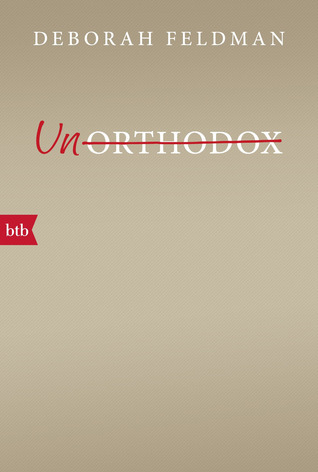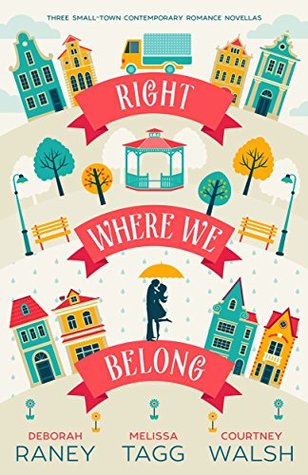
German Cover
Unorthodox by Deborah Feldman
3 out of 5 stars
Before the German translation of Unorthodox was released in 2016, the whole controversy surrounding it had completely passed me by. So it was not the whole hullabaloo that was made about it but the topic itself that made me want to read Feldman’s account of growing up in a strictly religious community.
Once I was done reading the book I read up on the supposed scandal behind it. And the thing is that I don’t really care if Feldman’s story is one hundred percent true. Almost every memoir is at least partly fictionalized. Memories are subjective. So, an account of one’s life can only ever be one side of the story; one tiny peephole glimpse at the (supposed) Big Picture. I can understand that a community that is being portrayed in such a radical way (true or not) will lash out wanting to fight for its reputation. I read Feldman’s story as just that – her story. A coming-of-age story, an account of emancipation in a culture that puts women second. Unorthodox deals with the importance of little acts of freedom, and with the significance of literature and empowerment.
Unfortunately, I can only give three stars because Feldman’s writing could’ve used some polishing. What annoyed me most was how she took it for granted that the reader would know about hasidic rites and customs. When I read a book like Unorthodox, I want to learn about the culture described – fiction or non-fiction. I need some background info on what a certain piece of clothing looks like and what it stands for; I need it explained what that special holiday means to a hasidic Jew. Most of the time Feldman simply mentions the Yiddish word for something and moves on to describing her experience, simply telling her story. The significance of what is actually happening is not clear to a non-hasidic, non-Jewish reader.
I just wish this book would’ve taught me a bit more about the hasidic culture in general. I know this is not what Feldman aimed at, but it would’ve made the book a more whole experience.
By the way, a great example of a book giving an individual’s account of a restrictive community while giving a well-rounded account of that culture is Reading Lolita in Tehran. I loved how it made me not only see the women’s troubles but really understand the political and historical background of what was happening in Iran at the time.
Feldman, however, missed out on a great opportunity to write something with a little more substance.
What I liked about Unorthodox was how it depicted the importance of knowing one’s self – mentally and physically. The way Feldman describes the physical symptoms of her mental problems; the way her body tries to tell her that she’s actually feeling unwell; and the way she comes to understand that – these were the parts which made me feel a connection to the narrator. I found it very authentic and I think it is important listen to the physical signs of mental problems.
If there’s one thing I take with me from this book, it’s how important it is to get to know oneself; and that we need the freedom to find out who we are in order to be happy.
Advertisements Share this:




